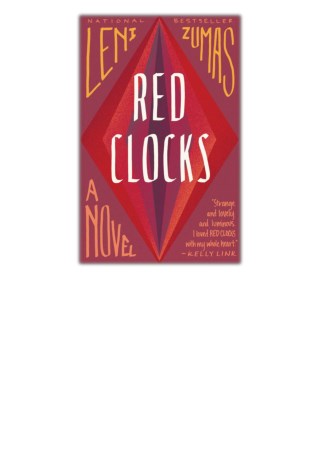
Leni Zumas is the author of three books of fiction: Red Clocks (2018), The Listeners (2012), and Farewell Navigator: Stories (2008). Education-B.A., Brown University M.F.A., University of Massachusetts.This is a story of resilience, transformation, and hope in tumultuous-even frightening-times. In the vein of Margaret Atwood and Eileen Myles, Leni Zumas fearlessly explores the contours of female experience, evoking The Handmaid's Tale for a new millennium. Red Clocks is at once a riveting drama, whose mysteries unfold with magnetic energy, and a shattering novel of ideas. Gin is the gifted, forest-dwelling herbalist, or "mender," who brings all their fates together when she's arrested and put on trial in a frenzied modern-day witch hunt.Mattie is the adopted daughter of doting parents and one of Ro's best students, who finds herself pregnant with nowhere to turn.Susan is a frustrated mother of two trapped in a crumbling marriage.Ro is a single high-school teacher, trying to have a baby on her own while also writing a biography of Eivor, a little-known 19th-century female polar explorer.In a small Oregon fishing town, five very different women navigate these new barriers alongside age-old questions surrounding motherhood, identity, and freedom. In this ferociously imaginative novel, abortion is once again illegal in America, in-vitro fertilization is banned, and the Personhood Amendment grants rights of life, liberty, and property to every embryo. Sydnee Monday and Petra Mayer adapted it for the Web.Five women.

Peter Breslow produced and edited this interview for broadcast.

And I think our books are very different, in the sense that, in The Handmaid's Tale, she's created such a spectacular and drastic world that does draw on elements of historical fact, but which is really so separate from our own world, whereas I think that the world of Red Clocks could frankly happen next week. I've admired Margaret Atwood for a really long time, and I love her work.

But that doesn't mean that a 15-and-a-half-year-old doesn't get to use that word for herself. And certainly I wasn't using the word clump to myself. I remember when I got the call that I was pregnant after many, many tries. I think that's where the complexity lies in this conversation. I think that she does want to distance herself but she's - she doesn't know what she's doing, you know, she hasn't quite turned 16 and she herself is adopted, which makes her decision to seek an abortion more complicated. The Week's Best Stories From NPR Books In 'The Power,' Women Develop A Weapon That Changes Everything


 0 kommentar(er)
0 kommentar(er)
